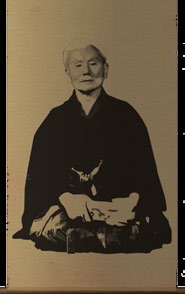A Quote by Rainer Maria Rilke
only someone who is ready for everything, who doesn't exclude any experience, even the most incomprehensible, will live the relationship with another person as something alive and will himself sound the depths of his own being.
Related Quotes
It is not inertia alone that is responsible for human relationships repeating themselves from case to case, indescribably monotonous and unrenewed: it is shyness before any sort of new, unforeseeable experience with which one does not think oneself able to cope. But only someone who is ready for everything, who excludes nothing, not even the most enigmatical will live the relation to another as something alive.
When a patient says he feels stuck and confused, and through good intentions he struggles to become loose and clear, he only remains chronically trapped in the mire of his own stubbornness. If instead he will go with where he is, only then is there hope. If he will let himself get deeply into the experience of being stuck, only then will he reclaim that part of himself that is holding him. Only if he will give up trying to control his thinking, and let himself sink into his confusion, only then will things become clear. (64)
What you are as a single person, you will be as a married person, only to a greater degree. Any negative character trait will be intensified in a marriage relationship, because you will feel free to let your guard down -- that person has committed himself to you and you no longer have to worry about scaring him off.
The Lord has given the Holy Spirit upon the earth, and in whomsoever He dwells, that one feels paradise within himself. You might say: why hasn't this happened to me? Because you have not given yourself over to the will of God, but you live according to yourself. Look at the one who loves his own will. He never has peace in himself and is always displeased with something. But whoever has given himself over to God's will perfectly has pure prayer. His soul loves the Lord, and everything is acceptable and good to him.
For one thing is needful: that a human being should attain satisfaction with himself, whether it be by means of this or that poetry or art; only then is a human being at all tolerable to behold. Whoever is dissatisfied with himself is constantly ready for revenge, and we others will be his victims, if only by having to endure his ugly sight.
The earth is not a mechanism but an organism, a being with its own life and its own reasons, where the support and sustenance of the human animal is incidental. If man in his newfound power and vanity persists in the attempt to remake the planet in his own image, he will succeed only in destroying himself - not the planet. The earth will survive our most ingenious folly.
For some reason or other man looks for the miracle, and to accomplish it he will wade through blood. He will debauch himself with ideas, he will reduce himself to a shadow if for only one second of his life he can close his eyes to the hideousness of reality. Everything is endured-disgrace, humiliation, poverty, war, crime, ennui-in the belief that overnight something will occur, a miracle, which will render life tolerable.
Do what he will, he [the profane man] is an inheritor. He cannot utterly abolish his past, since he himself is a product of his past. He forms himself by a series of denials and refusals, but he continues to be haunted by the realities that he has refused and denied. To acquire a world of his own, he has desacralized the world in which his ancestors lived; but to do so he has been obliged to adopt an earlier type of behavior, and that behavior is still emotionally present in him, in one form or another, ready to be reactualized in his deepest being.
No true Latter-Day Saint, while physically or emotionally able will voluntarily shift the burden of his own or his family's well-being to someone else. So long as he can, under the inspiration of the Lord and with his own labors, he will supply himself and his family with the spiritual and temporal necessities of life.
When therefore we are hindered, or disturbed, or grieved, let us never attribute it to others, but to ourselves; that is, to our own principles. An uninstructed person will lay the fault of his own bad condition upon others. Someone just starting instruction will lay the fault on himself. Some who is perfectly instructed will place blame neither on others nor on himself.
He will see himself and life and the world as truly as our human limitations will permit; realizing the brevity and minuteness of human life, he will realize also that in individual minds is concentrated whatever of value the known universe contains. And he will see that the man whose mind mirrors the world becomes in a sense as great as the world. In emancipation from the fears that beset the slave of circumstance he will experience a profound joy, and through all the vicissitudes of his outward life he will remain in the depths of his being a happy man.
The boy will remain a son and never become a father. He will be forgotten by the crowd once his blood is rinsed clean from the ground; his sister will think of him but soon she will forget him, too. He will live on only in Han's memory, a child punished not for his own insincerity but someone else's disbelief.






































